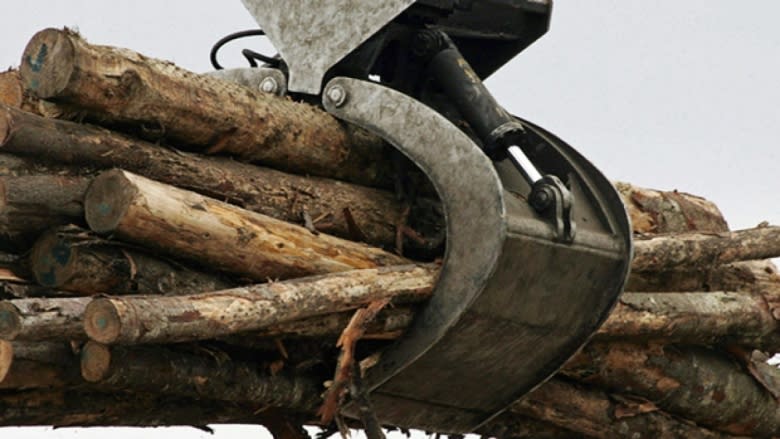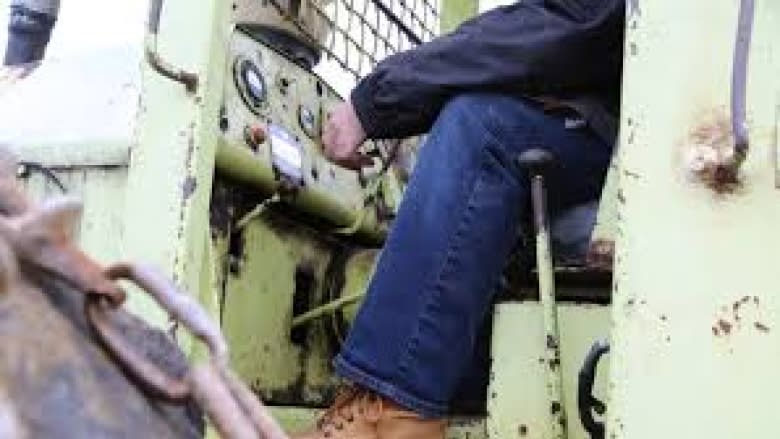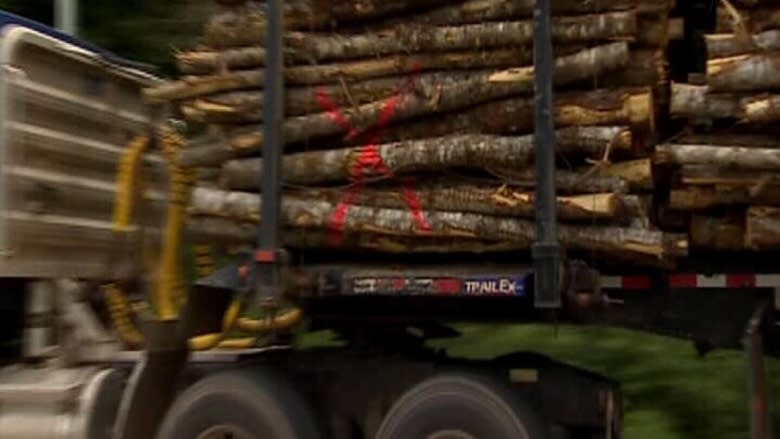Woodlots group goes up against J.D. Irving before Appeal Court
A Sussex-based wood marketing board will square off today against forestry giant J.D. Irving Ltd. before the New Brunswick Court of Appeal.
SNB is hoping the court will overturn a December decision by the New Brunswick Forest Products Commission that found in favour of JDI and its practice of sidestepping the board in wood deals.
The commission struck down an attempt by the marketing board to regain control over how wood from private woodlots is bought and sold across much of the south of the province.
In the SNB marketing board's region, more than 80 per cent of the logs from private woodlots go to Irving mills.
"It's the marketing board system, in essence, that we are trying to uphold here," the SNB board chair, William Richards, said of the appeal.
The board system was established by provincial legislation in the early 1980s to give woodlot owner groups access to markets and the ability to negotiate prices with forestry companies that also have access to Crown forests. Each board is operated by the woodlot owners in its territory.
"We're hoping for a clarification of the of the [Natural Products] Act, so wood from private woodlots will have to be sold to and purchased from the board, rather than buyers and processors and so on doing an end-run around the board," Richards said.
Under the marketing board system, landowners sell their wood to local boards that, in turn, sell the logs to mill owners under negotiated terms.
Rejected board system
JDI stopped the practice of buying its wood from the SNB board in 2012 and introduced a new way of doing things.
The company bypasses the board, requiring landowners or forestry contractors to negotiate wood prices and sales on an individual basis. A levy on each sale is then paid to the SNB board.
This new system, although introduced after decades under the marketing board system, is "established practice," the company says in its Appeal Court submission.
JDI argues that working around the marketing board gives the company "certainty of supply," accountability and transparency, and says there were times when a board failed to fully deliver on contracts.
Irving expanded its "direct contracts" system to other regions of New Brunswick, throwing the province's 40-year-old woodlot marketing board system into turmoil.
SNB eventually issued an order saying all logs from private woodlots in its territory had to be sold to the board and, in turn, bought from the board by the mill owners.
Sought ruling from commission
In response, Irving, AV Nackawic and a group of contractors and smaller companies turned to the Forest Products Commission, claiming SNB overstepped its authority.
In its December ruling, the commission found, among other things, that the SNB order was an "improper" attempt to use its regulatory powers to force Irving to once again negotiate with the marketing board.
In the SNB submission to the Court of Appeal, lawyer David Duncan Young countered that the board has been granted — by provincial legislation — the power to issue the order, and that it applies to "all buyers and sellers," not just Irving.
"The only consideration of the Board in making the Order was a desire for fairness, uniformity and predictability in order to facilitate the efficient promotion, control and regulation within its regulated area of the marketing of the regulated product," said Young.
The JDI submission to the court describes SNB's attempt to make the company purchase logs directly from the marketing board as "improper."
"In doing so, it abused its power and interfered with JDI's legitimate interests in pursuing individual contracts with wood producers."
More wood purchases
A company spokesperson said she wouldn't comment on the SNB appeal because the matter is before the courts.
But in newspaper ads, J.D. Irving has said the direct contract system is "responsible" for a 300 percent increase in the volume of wood purchases in SNB territory since 2009.
The company claims it bought more private wood in the 2016- 2017 operating year, than ever in its history.
But Natural Resources Canada records suggest strong lumber and paper product sales are likely a big factor.
Lumber exports nationally jumped from $14.1 billion in 2009 to $21.3 billion in 2016.
SNB says there are also fewer companies sharing the wood supply in the south of the province today.
Thirty-five companies purchased wood in SNB territory in the 2004-2005 operating year. In 2017-2018, there were 19 buyers, with 83 percent of the wood going to Irving.





